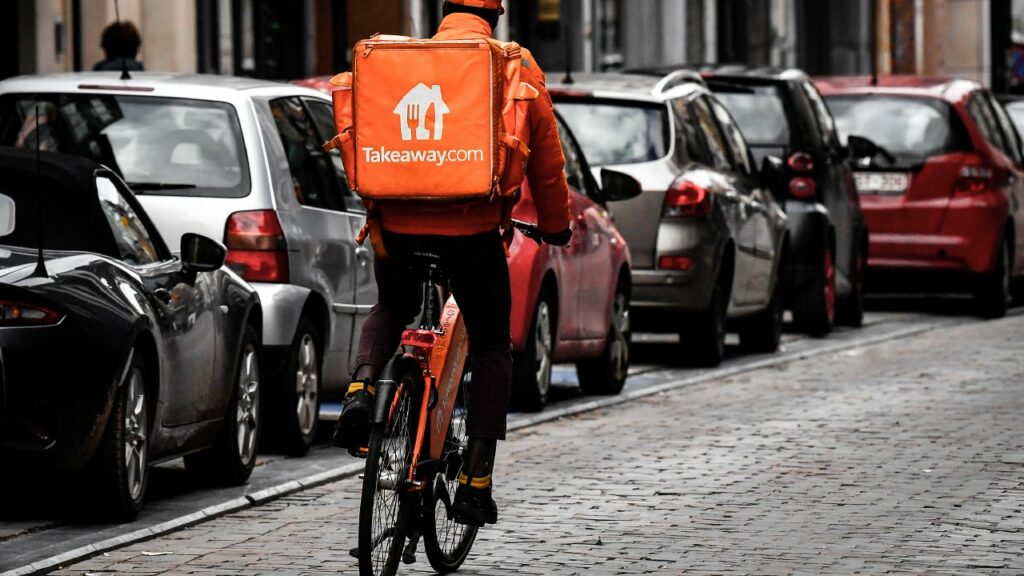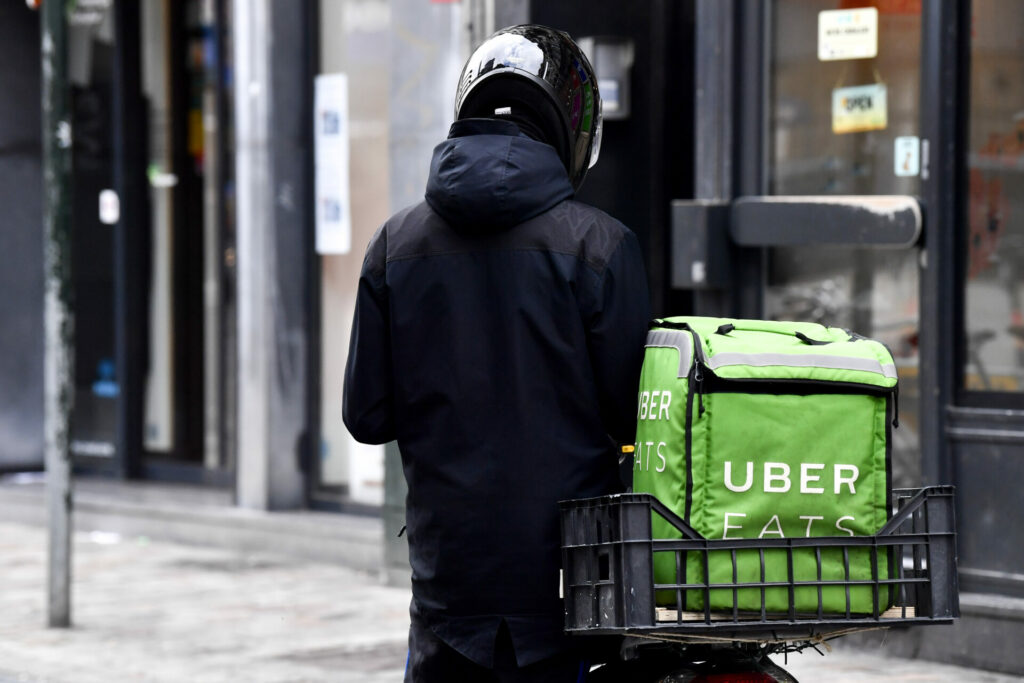EU Labour Ministers will meet on 12 and 13 June in an Employment, Social Policy, Health and Consumer Affairs Council and vote on the directive on the rights of platform workers. Now, the Progressive International (PI) organisation is urging them to take a stance.
For platform workers, this directive – which aims to improve the working conditions of people working in the platform economy – is "crucial," signatories from across the EU said in an open letter, adding that their "lives depend on it." The directive, if approved, will determine their status (self-employed or employed), the relationship with the platforms and the transparency of their algorithms.
"EU leaders, which side are you on? The lobbies of Uber and company, or the workers? It is time to choose," Leila Chaibi, French MEP and Vice-president of the Committee on Employment and Social Affairs (EPML) told The Brussels Times. "It is your duty to listen to this call from workers across the EU to recognise their right through a simple presumption of employment as proposed by the European Parliament."
"We are riders or drivers. We chose these jobs naively believing in the myth of entrepreneurial freedom. We thought we would be free to set our prices, choose our hours and determine our working conditions. But the reality is quite different. We spend our days waiting for an order or an errand as if held hostage without knowing when an errand will be allowed. If we were to refuse one, the platform would always allocate us fewer."
Digital slaves to the algorithm
Many of these drivers work up to 13 hours a day, seven days a week, and said that they feel as if platforms such as Uber, Bolt and Heech use them as their digital slaves. "Dependent on their will, we are under their control, for fear of not being able to make ends meet."
Despite working for up to 70 hours a week, the signatories say they only earn about €1,300 per month – which amounts to a wage of €4.30 per hour. "Is this a desirable, dignified income for anyone who wants to serve their fellow citizens? The platforms are never out of pocket. They charge us commissions of up to €40 per journey."
They question how much the "connection" these platforms provide – simply bringing a customer and a driver together – justifies these high commissions. "As a result of the prices imposed by the platforms, more and more of us are no longer able to reimburse our car rentals or pay our insurance. Subjected to the platforms' conditions, we can no longer make a decent living."
Bike couriers, meanwhile, often cycle over 100km a day to deliver meals, including in the rain or snow, during heatwaves and storms to meet their delivery deadlines. "The application gives us the orders, and in order to arrive on time, it commands us to disregard traffic regulations. If there is an accident during a delivery, the platforms – otherwise so quick to supervise us – disappear immediately," they underline.

Credit: Belga
"No work accident, no sick leave, nothing is taken care of by UberEats, Deliveroo or Wolt. Neither is our equipment nor our health." Emphasising the physical and psychological toll the constant pressure has on them, they cite the increasing isolation imposed on them by their work. "While we are officially independent, in reality we are openly subordinate to these platforms."
It is the platforms that are setting the drivers' prices and imposing their routes and travel times. Additionally, Uber, Deliveroo and others can opt to "disconnect" drivers when they no longer want them – without reason, without any possibility of explanation from a human, without recourse. "No human resources or after-sales service for us."
They also stressed that while drivers and riders pay their taxes, the platforms themselves do anything to avoid and evade them. "This is an unacceptable unfair competition, which stimulates the lowest social standards. As always, in this context, employees are the adjustment variable."
While the platforms are pushing social dialogue between the workers and the companies, the workers insist that what they need is "real rights, written in stone, not false discussions to get crumbs."
Related News
- Uber fares allegedly linked to phone battery levels
- Uber willing to compensate family of platform worker killed in Brussels
- Delivery platforms: Time for some social regulation
Leaks in the media have revealed that ministers are reportedly considering the discretionary right of Member States not to apply the presumption of employment in the event of collective agreements or laws existing beforehand, "but our rights must have a common base throughout Europe and derogations are unacceptable."
Therefore, the organisations are asking the EU labour ministers to do their duty and ensure that they support a law that will allow transparent and safe use of algorithms, respect for the rights of truly self-employed workers, the correct classification of workers who should be employees without having to go to court to for it, and fair competition between platforms and other companies – "unconditionally and without criteria."
Finally, they demand a presumption of employment, which is not subject to a series of conditions. In that sense, it is the companies that have to claim that the workers are autonomous in each context, instead of the workers having to prove that they are essentially being employed without the benefits that this usually entails.
"Likewise, this presumption of employment must be governed by all Member States. The door should not be opened for states to fail to comply with it, since that would mean opening the door for the powerful lobby to act in all states, one by one, and eliminate our rights here and there."

